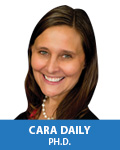Description
LIVE STREAM: May 28 – 30, 2025 from 8:30am – 4:00pm (Ottawa, ON) Please adjust your start time according to your specific time zone.
ON-DEMAND: Recorded footage & course content (certificate, videos, quiz) will be available until July 4, 2025. Please allow 3 – 10 business days for footage to be processed. Extensions cannot be granted under any circumstances.
Registration will close May 27, 2025.
Wednesday, May 28, 2025 | Day One
Understanding Autism and Social Communication Disorder
PRESENTED BY Cara Daily, Ph.D.
In Part 1 of this one-day workshop, participants will gain an in-depth understanding of Autism Spectrum Disorder (ASD) and Social Communication Disorder (SCD). Autism expert and author Cara Daily, PhD, BCBA will guide attendees through the diagnostic criteria, assessment tools, and the brain function related to both disorders, providing participants with a strong foundation for working with children and adolescents on the autism spectrum.
This session will focus on recognizing the unique behaviors and challenges individuals with ASD and SCD face. Participants will learn how to differentiate between autism and social communication disorder, as well as how to assess and diagnose these conditions using tools like the DSM-5® and ICD-11. Attendees will also explore the various comorbidities that may accompany these disorders, such as ADHD, learning disorders, and intellectual disabilities.
Through hands-on activities, participants will experience firsthand what it’s like to live with ASD, examining the challenges their clients, students, or patients face. This workshop will also explore brain function in autism, allowing participants to grasp the neurological underpinnings that contribute to the social communication and behavioral difficulties seen in individuals with autism.
Managing Challenging Behaviours and Enhancing Social Communication: Evidence-Based Interventions and Practical Strategies for ASD and SCD
Part 2 of this one-day workshop will focus on evidence-based interventions and practical strategies for managing challenging behaviors and enhancing social communication in children, adolescents, and young adults with Autism Spectrum Disorder (ASD) and Social Communication Disorder (SCD). Building on the foundational knowledge from Part 1, this session will focus on practical, hands-on tools to support behavior change, teach social communication skills, and create supportive environments in home, school, and community settings.
Dr. Cara Marker Daily will explore behavioral strategies like Applied Behavior Analysis (ABA), as well as Cognitive Behavioral Therapy (CBT) for promoting self-regulation and reducing anxiety. Participants will learn how to integrate social communication interventions such as PECS, turn-taking, and social skills training into their practices.
Additionally, participants will focus on modifying environmental factors (both home and classroom settings) to support the individual’s growth and behavior management. Emphasis will be placed on creating environments that promote social skills development and reduce triggers for challenging behaviors. Special attention will also be given to preparing children and young adults with ASD and SCD for independent living and adulthood, addressing topics like sex education, work readiness, and transitioning to the workforce.
Thursday, May 29, 2025 | Day Two
Fostering Social-Emotional Learning Skills for Academic Success Using Brain-Behaviour Relationships
PRESENTED BY Steven G. Feifer, D.Ed., ABSNP
This workshop will examine the impact of mental health conditions on students’ academic performance and social development, offering practical strategies schools can use to promote emotional wellness. Through the lens of brain-behavioural relationships, this workshop will explore how schools can create environments that support not only academic achievement but also emotional regulation, social skills, and overall mental well-being. Factors such as poverty, trauma, childhood abuse, parental neglect, and the lasting effects of the pandemic can disrupt key brain processes related to learning and emotional behavior, resulting in challenges for students both academically and socially.
The focus of this workshop is on early intervention, effective assessment, and evidence-based classroom strategies. We will equip educators, school counselors, and mental health professionals with the tools they need to support emotional wellness in students, helping them overcome emotional challenges and thrive academically. Participants will learn how to assess emotional wellness, implement social-emotional learning initiatives, and create nurturing, resilient school environments that foster positive outcomes for all students.
Reading and Writing Disorders: Brain-Based Interventions for Students
This 3-hour afternoon workshop will explore reading and written language disorders through a brain-based educational lens, offering participants targeted strategies for supporting students with learning challenges. The workshop will be divided into two key segments: reading disorders in the first half and written language disorders in the second, each designed to equip educators and clinicians with the practical tools necessary for effective intervention.
Understanding and Addressing Reading Disorders
The first part of the workshop will focus on differentiating dyslexia from other reading disorders, with a special emphasis on classifying developmental reading disorders into four distinct subtypes. Participants will learn how to identify each subtype and match it with evidence-based interventions to target the specific cognitive challenges associated with it. We will delve into essential cognitive constructs involved in the reading process, including:
- Phonemic awareness
- Phonological processing
- Orthographic processing
- Working memory
- Executive functioning
Additionally, the Feifer Assessment of Reading (FAR) will be introduced as a diagnostic tool to assess reading abilities, helping to inform intervention planning and guide targeted support for students. Participants will gain hands-on strategies to assess reading difficulties and design appropriate interventions based on individual student needs.
Exploring Writing Disorders and Intervention Strategies
The second half of the workshop will examine writing disorders, with a focus on how “frontal lobe” processes—such as attention, working memory, and executive functioning—influence each subtype of writing difficulty. We will explore three distinct subtypes of writing disorders and discuss the neurological basis for each. Participants will also review five essential steps for effective written language instruction, providing practical strategies for supporting students with writing challenges, including dysgraphia.
The workshop will introduce the Feifer Assessment of Writing (FAW), a tool designed to diagnose writing disorders and guide intervention planning. Participants will explore how to use the FAW and other diagnostic instruments to identify students with written language difficulties, ensuring they receive the appropriate interventions.
Friday, May 30, 2025 | Day Three
Oppositional, Defiant and Explosive Behaviours: Transforming Challenges for Long Term Success
PRESENTED BY Caroline Buzanko, Ph.D., R. Psych
While occasional defiance and emotional outbursts are a normal part of child development, they become concerning when they are frequent, intense, and interfere with a child’s ability to function at home, school, or in relationships. Behavioural disorders are the most common mental health issue in children, often co-occurring with other conditions, and can lead to long-term difficulties if left unaddressed.
Early intervention is key to promoting social, emotional, and behavioural well-being. This workshop is designed for anyone working with children and youth facing behavioural challenges, including clinicians, educators, and families. Participants will gain an understanding of these behaviours, their root causes, and the limitations of current approaches. The workshop will also provide practical, evidence-based strategies that can be immediately applied to support children and youth in various settings. Boost your confidence with creating positive, supportive environments that encourage desirable behaviours, enhance communication, and foster conflict resolution skills.
Anxiety Solutions: Practical Strategies for Resilience, Confidence and Coping Skills in Children and Youth
Anxiety has reached epidemic levels and is now the most common mental health challenge among children and teens. Unfortunately, many children go untreated until anxiety escalates into more severe issues, such as depression, social difficulties, and behavioural problems. Early intervention is crucial, but many parents, teachers, and professionals miss the signs of anxiety or unintentionally reinforce the anxiety cycle.
This workshop is designed for anyone working with children and teens struggling with anxiety. Through a transdiagnostic lens, participants will gain a deep understanding of how anxiety manifests and how to intervene effectively. Special attention will be given to the unique stressors faced by children and adolescents today, including pressures from technology and social media. Participants will also learn why common strategies may inadvertently worsen anxiety and, more importantly, how to help kids build resilience, confidence, and coping skills to overcome their fears.
This workshop will provide clinicians, educators, and families with the tools needed to address and manage anxiety in children and teens effectively. Participants will leave with practical strategies, a deeper understanding of anxiety, and confidence in their ability to support young people in building resilience and overcoming fear.








